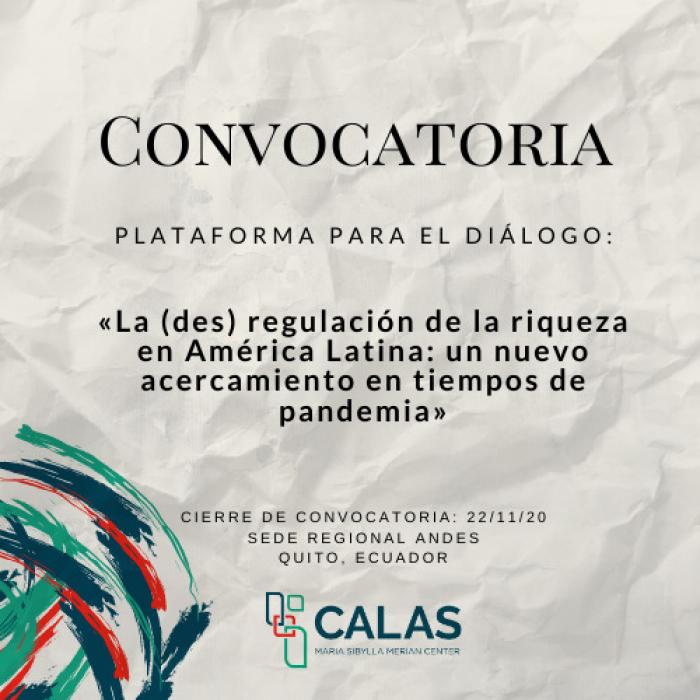Latin America is the most unequal region in the world and mechanisms to regulate wealth and reduce inequity continue to failure. Historically, our societies have been characterized by regressive tax systems, states captured by financial elites, capital flight, and the embezzlement of public funds. Tax revenues in Latin America depend on consumption duties and the export of raw materials. By 2015, only 1.8% of GDP was generated from income tax, compared to 8.3% in OECD countries. In some nations of the region, accumulated wealth reaches 60% of GDP.
This historical concentration of wealth, coupled with tax injustice and its impact on inequalities, has manifested in a lurid way in the current pandemic: The wealth of billionaires has grown by 17%. The combined fortunes of the 73 billionaires of Latin America has increased by 48.2 billion dollars since the beginning of the pandemic, an amount equivalent to 38% of the stimulus packages that all Latin American governments have activated. And every two weeks a new billionaire has appeared. By the same token, it is estimated that up to 52 million people will become poor and 40 million will lose their jobs during 2020 (data from Oxfam and ECLAC).
These figures show that understanding inequalities requires knowledge about how and why wealth is generated and concentrated. Inequalities result from linked processes of dispossession and oligarchic accumulation of wealth over time. The history, present, and probable future of tax systems and, from a broader perspective, of wealth regulatory policies should no longer be understood in terms of technical categories. There is an urgent need for an interdisciplinary approach that encompasses issues of institutions and historical paths, power constellations, tax cultures, social resistance to wealth, and discourses on fiscal and tax justice. The importance of creating “tax legitimacy” – that is, reducing the elite’s rejection of the payment of progressive taxes – is pressing. This cannot be obtained through laws, administrative practices, or efficiency alone, but also through states that offer quality and widely-accessible public goods that, in the short term, manage the pandemic in a framework of social justice and that, in the long term, improve the quality of life and outlook of taxpaying citizens.
Historically, states have played a vital role in this regard, either mitigating the concentration of wealth or reproducing it in favor of certain powerful groups. This has been taken up by recent studies which, in contrast to the monetarist theories that emphasize financial discipline, have proposed a more complex view of the role of states in the configuration of (in)equality and national development with social justice and inclusion.
Within this framework, there is no doubt that the contemporary crisis in the region is wide-ranging, as it crosses multiple terrains, from the social, economic, and cultural to the political. This moment is shaped by the particular short-, medium-, and long-term cycles of societies that are, simultaneously, embedded within global process. As never before for Latin America, it is now urgent to open the discussion on the (re)distribution and regulation of wealth, as a key component of solidarity, knowing that fair distribution is not everything, but it is a first step to build more egalitarian societies.
Under these considerations, the Platform calls on researchers to reflect and participate in this international meeting on one or more of the following issues:
- The historical configuration of Latin American tax systems and their current impacts on the capacity of states to regulate wealth. What were the processes, objectives, mechanisms, scopes, and limits of tax programs established by progressive governments?
- Political practices and strategies of powerful groups in the region to influence state mechanisms of (de)regulation of wealth.
- Construction and impact of discourses around fiscal and tax justice and regressive tax cultures.
- Social resistance, collective action, and political conflicts around state mechanisms of wealth regulation, especially state attempts to manage the COVID-19 crisis.
Rules for applying:
- The call is aimed at applicants from the Social Sciences and Humanities who can provide solid theoretical and empirical reflections on at least one of the four axes mentioned in the call.
- Application: Fill out the application form, including title and summary (300-400 words) of the proposal and a brief biographical sketch indicating professional training and relevant publications.
- Language: Spanish or English
- Deadline for submitting proposals: December 20, 2020.
An academic committee will select proposals under criteria of excellence. Applicants will be notified before January 15, 2020 about the results of their work.
CALAS will cover accommodation for all participants. In addition, there will be limited resources to assume travel expenses to Quito.
Contact:
Maria Sibylla Merian Center for Advanced Latin American Studies
E-mail: info@calas.lat
Submission of proposals: desigualdades@calas.lat (reference: “platform wealth”)


